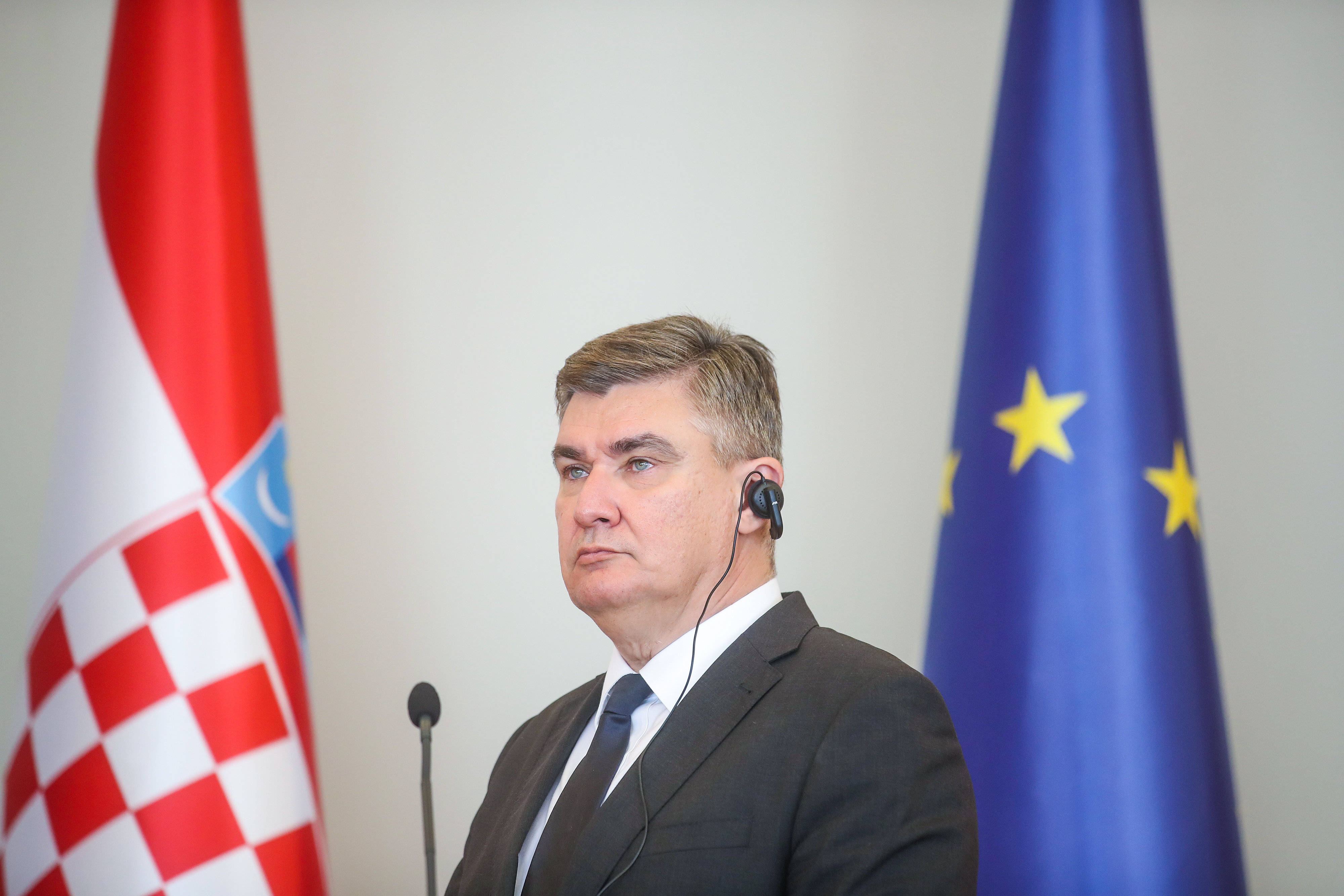Croatia
An undisputed Victory for the disputed President

The Croatian President Zoran Milanović
© picture alliance / PIXSELL | Slavko MidzorAlthough there was no doubt about the final winner after the first round of voting, Milanović's success with 74.7% of the vote was still a big surprise. The ruling HDZ was so shocked that neither his opponent, the unconvincing Dragan Primorac, nor Prime Minister Andrej Plenković congratulated him. Milanović had also formally refrained from congratulating HDZ in the last three parliamentary elections. Welcome to immature Croatian democracy.
This anecdote was taken by the media as an indication that the differences of opinion between the president and prime minister will continue to shape foreign, defense and security policy. The president has considerable powers in this area. After his victory, Milanović expressed his desire to restart cooperation with Prime Minister Plenković, without saying specifically whether this would also mean a change in his own tough stance towards the EU and NATO. Milanović's future behavior towards Croatia's Euro-Atlantic allies will primarily depend on whether his second and final presidential term also marks the end of his ambitions - with a moderation of his positions being more likely - or whether it is merely a preparation for a new run at the office of prime minister.
>> Pre-election report from 20 December 2024
What does Milanović want?
A necessary prerequisite for strengthening Milanović, both in terms of domestic and foreign policy, would be a weakening of his populism – as he no longer needs votes in his last term in office, he could strengthen his role as a statesman. The president could use his second term to establish himself as a reliable figure, particularly through the powers granted to him by the constitution. Domestically, he could present himself as someone who might be able to forge a broad coalition against the permanently ruling HDZ in the 2028 parliamentary elections by taking over its leadership.
Further developments will certainly also be influenced by the behavior of the United States after 20 January. Should there be an increasing divergence between the US and Europe, Milanović could expand his already proven populism by forging a Europe-wide alliance with pro-Trump forces in Europe, with uncertain consequences for the entire EU.
Implications for the liberals?
Such a development could pose major challenges for the smaller liberal parties such as Centar, HSLS and IDS. If the campaign for the upcoming regional and local elections in May 2025 goes in the direction of forming two large blocs – one for and one against the HDZ – the pressure on the liberals to become part of one of these blocs will increase. This would mean a loss of their individuality, but in exchange they would receive mandates via the electoral lists.
This would possibly be a way forward for the “Centar” party, which is strong in Dalmatia, as the Social Democrats do not pose too much of a threat to them there. However, the HSLS in the region around Bjelovar is heavily dependent on the HDZ. The success of the IDS, whose popularity among voters in Istria is undisputed, will primarily depend on whether they appreciate a coalition with the Social Democrats or not.
Dušan Dinić is Senior Manager for Croatia of the Friedrich Naumann Foundation for Freedom, based in Belgrade, Serbia.
